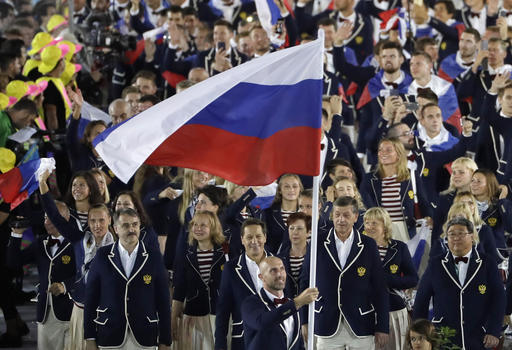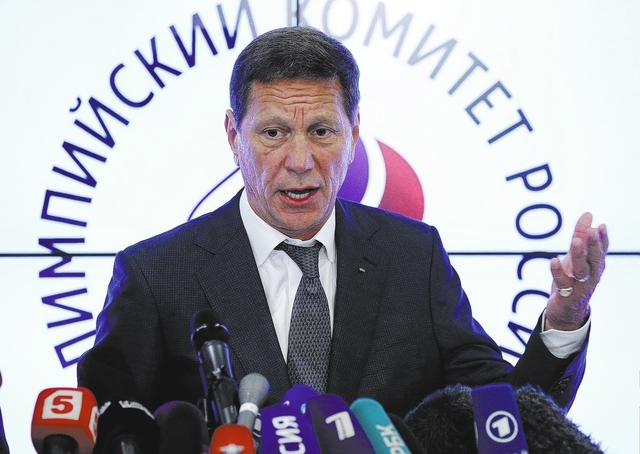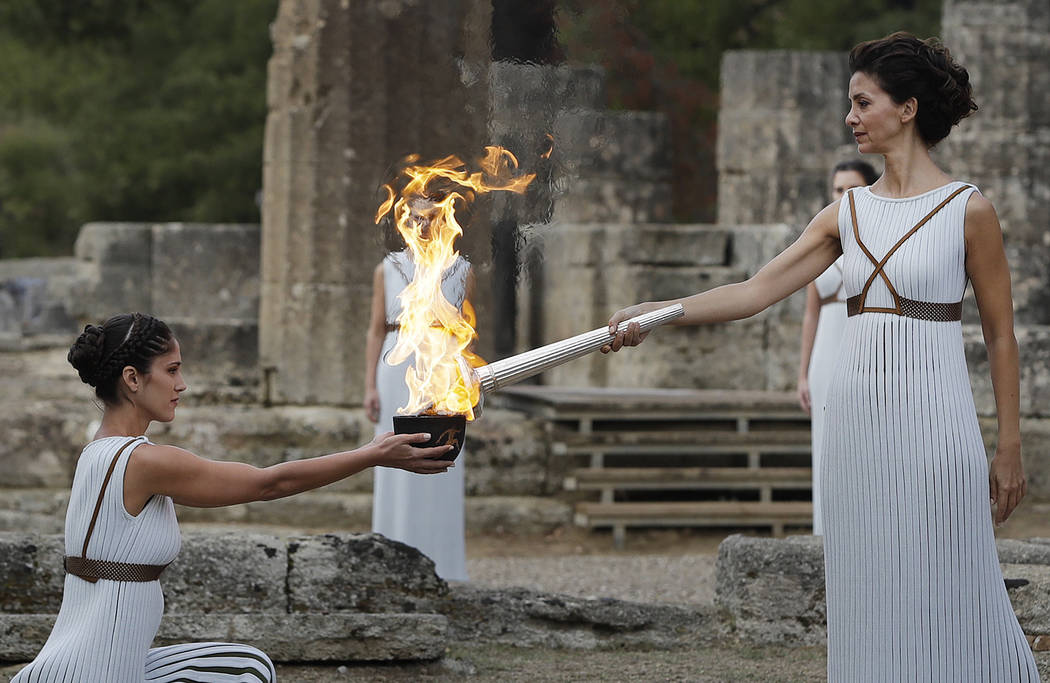IOC to decide whether Russia will be banned from 2018 Winter Olympics
Nearly a year and a half after drawing widespread criticism for not banning Russia from the 2016 Summer Games in Rio de Janeiro following allegations of a state-sponsored doping regime, the International Olympic Committee faces a similar quandary Tuesday in Switzerland, where it will decide whether to ban Russia from the upcoming Winter Olympics in PyeongChang.
The IOC is expected to announce its decision Tuesday evening in Lausanne, after its executive board spends the afternoon reviewing the findings of the latest independent investigation into doping among Russian athletes, a 16-month inquiry led by the former president of Switzerland, Samuel Schmid.
Pressure on the IOC to issue a blanket ban against Russia has only increased since the Rio Games, as more evidence has emerged supporting allegations made by a former director of a Moscow anti-doping laboratory that the Russian government was complicit in a widespread scheme that included sabotaging drug testing of Russian athletes during the 2014 Winter Games in Sochi.
Last December, Canadian law professor Richard McLaren released the second part of his inquiry into Russian doping, conducted for the World Anti-Doping Agency, which concluded that more than 1,000 Russian athletes across at least 30 sports, including both summer and winter events, had been involved in “an institutional conspiracy” of doping that dated from at least 2011.
Last month, an IOC commission led by Swiss lawyer Denis Oswald stripped a Russian cross-country skier of his gold medal from 2014 and banned him for life. In the decision, the Oswald commission explained that it had found Grigory Rodchenkov, the former director of a Moscow anti-doping laboratory, to be a credible witness, and that evidence supported his allegations that Russian government agents helped him swap out tainted urine samples from cheating Russian athletes in Sochi for clean samples. The IOC has punished 19 Russian athletes and taken away 11 medals for confirmed doping violations during the Sochi Games.
Russian sports ministry officials have apologized for the prevalence of doping among the nation’s athletes, but have continued to deny any government involvement.
Last week, at an event in Moscow promoting the 2018 World Cup in Russia, former sports minister Vitaly Mutko said “there is no proof” of state-sponsored doping.
“Everyone is trying to make some kind of axis of evil out of us, just because we’re a great sporting power,” Mutko said.
Mutko and others in Russia have sought to cast Rodchenkov as a rogue actor. Rodchenkov fled Russia in 2015, was featured in the Netflix documentary “Icarus” this year, and is living under the protection of American authorities.
Rodchenkov was one of three Russian whistleblowers to go public in 2015 and early 2016 with allegations of state-sanctioned doping. In a report issued just weeks before the Rio Games, WADA concluded “beyond a reasonable doubt” that the Russian government was involved with drug cheating.
Rather than ban the nation’s athletes from Rio, however, the IOC decided to leave the decision up to individual sport federations. The IAAF, the international federation for track and field, banned Russian athletes, but other federations, such as those for gymnastics and swimming, allowed Russians to compete in Rio.
In an email exchange last week with a reporter for ESPN , relayed through his attorney, Rodchenkov advocated a ban of Russia that would allow Russian athletes who can prove their innocence of drug cheating to compete in South Korea under a neutral flag.
“I wish Tuesday began with a confession and apology from Russia, which would give the world confidence they might embrace truth and reform,” Rodchenkov wrote, according to ESPN. “This is not the Russian way. If they are not disciplined seriously, they will be laughing at the IOC behind closed doors and plotting their next caper.”
While some international sports figures have suggested the IOC adopt a punishment similar to what Rodchenkov proposed, others have said it would be difficult for Russian athletes, whose anti-doping agency has been labeled non-compliant by WADA since 2015, to verify they haven’t taken banned substances.
“The burden of proof would be pretty high,” said Dick Pound, the Canadian IOC member and former president of WADA. “I’d want to know where have you been training, where have you been tested, who’s doing the analysis, and how many times have you been tested?”
Pound supports a wholesale ban, which the IOC has never imposed on a nation for competitive violations. The IOC has banned countries previously for geopolitical reasons, such as the ban of South Africa until 1992 because of apartheid.
“I think we fumbled the ball in Rio,” Pound said. “If you’re going to stand for the principles that you purport to espouse, the IOC should act, and say, ‘I’m sorry, you have attacked our event by your conduct in Sochi, we’re satisfied that there is, in fact, a state-sponsored doping program… . and so therefore, we’re excluding you.’”



















